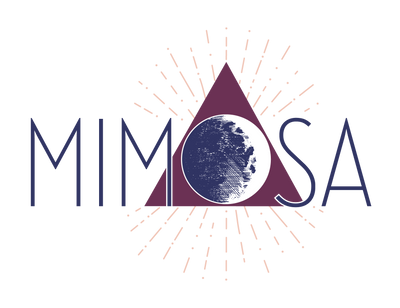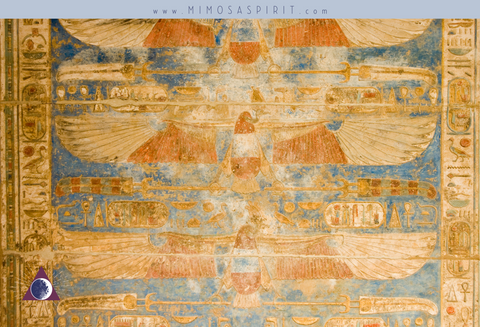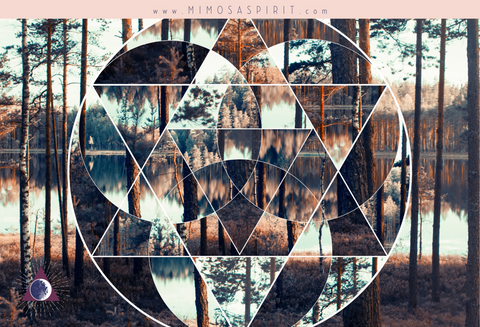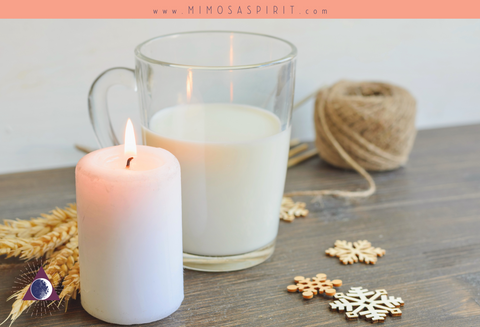
Long-time customers may have noticed that Mimosa no longer stocks White Sage bundles. While we carried White Sage and related products over a decade, we made the decision in late 2020 to stop purchasing White Sage for resale along with some other materials such as Sweetgrass, Ceremonial Tobacco, and Palo Santo.
This blog post will be a bit different than our usual content, but we want to take the opportunity to share with the members of our community the factors that went into our decision, some additional steps we've taken in pursuit of spiritual and cultural respect, and social justice, and finally, some additional resources to assist you as you continue learning about topics of cultural and ecological impact – which we see as important (and in fact long overdue).
Why the change?
Our decision to stop carrying White Sage, Sweetgrass, Ceremonial Tobacco, and Palo Santo has been made out of respect for Indigenous groups that have traditionally used these materials and medicines in their spiritual and cultural practices, as well as ecological concerns about the unsustainable harvesting of these materials for commercial purposes.
We at Mimosa have learned about the issue of cultural misappropriation of these medicines by listening to many Indigenous voices about this issue. Many Indigenous folks have asked that smudging and the use of sacred plants like White Sage, Sweetgrass, Ceremonial Tobacco, and Palo Santo not be done by those who are outside of the closed spiritual practices they belong to - unless you are specifically invited to take part in this practice with an Indigenous person. We realize that Indigenous people are not a monolith here and not all people hold this view. But, since some folks have been calling for this change, we have decided to honor those requests.
What some Indigenous leaders, activists, and educators often invite non-Indigenous folks to do instead is to connect with our own individual cultural heritages to find methods of cleansing and making offerings that are not culturally appropriative. In other words, to avoid taking from cultures not belonging to their own.
We acknowledge that Mimosa has contributed to this appropriation for years - but Mimosa's owner, as well as our team members, have collectively made the decision to stop contributing to this injustice and take responsibility for our mis-steps.
Consider that, until the 1978 American Indian Religious Freedom Act was passed in the United States, an Indigenous person could be arrested for using materials like White Sage as part of their spiritual practice. Now, just decades later, White Sage is being over-harvested and exported around the world for anyone to use casually without considering the ugly history of forced assimilation and cultural genocide that the United States government has committed against Indigenous communities for centuries. Additionally, these plant medicines are being used by most people with little to no real understanding of the entirety of the practices in which they are used - and again, with no awareness or acknowledgment of the harm that the misappropriation of these spiritual practices may still cause to Indigenous people.
What action has Mimosa taken besides discontinuing the sale of White Sage and other culturally/ecologically problematic items?
Early in 2021, Mimosa donated our remaining stock of White Sage, Sweetgrass, Ceremonial Tobacco, feather fans, smudging "kits," and other items spiritually significant to closed traditions (a total value of over $3500) to the following organizations:
- Native Counselling Services of Alberta - An Edmonton based non-profit that provides legal counsel and advocacy for Indigenous people across Alberta
- Thunder Woman Healing Lodge Society - A Toronto based non-profit that leads social justice services including elder-led programs for formerly incarcerated Indigenous women
- Stop Line 3 - A group led by Anishinaabe activists working against Enbridge's Line 3, an oil pipeline currently being constructed through treaty land in Minnesota.
Because we were unable to find an organization or group of Indigenous people in which to donate our remaining stock of Palo Santo, we decided to donate 100% of the sales dollars (not just net profit, but total sales dollars) to the Front Line Defenders chapter of The International Foundation for the Protection of Human Rights Defenders Trust. Front Line Defenders supports Indigenous-led groups around the world including FECONAU, an organization focusing on the rights of Indigenous people from more than 30 communities in the Peruvian Amazon who are fighting for the sovereignty of their ancestral territories.
It is difficult to overstate the importance of the work that FECONAU and similar groups are doing. These organizers are working against the active destruction of their land, livelihood, and culture at the hands of wealthy corporations.
To date (as of 8/27/23) Mimosa has donated $1,979.50 of Palo Santo sales to Front Line Defenders.
You may also notice that throughout our website and store, the term “smudging” has been updated to “smoke cleansing,” since the term smudging was incorrectly applied to the act of cleansing without the cultural context and deeper meaning connected with the act of smudging by Indigenous people.
This said, we encourage our customers to do some research on their own cultural background and spiritual practices to not just replace Sage and smudging with another plant or herb, but to go deeper and look into other traditional methods of cleansing or blessing that make sense for you. For example, most cultures around the world have worked with water in some form of ritual cleansing or blessing that may be more applicable to you than burning any type of herb or plant.
Mimosa's owner, Ashley Leavy, now works regularly with an anti-racism educator to continue learning and implementing changes in the way Mimosa interacts with different spiritual traditions so as to promote both respect and justice. Here's what Ashley has to say about this process:
How can I learn more?
We hope that this blog post has served as a starting point to get you thinking about this complex and nuanced topic, if you haven't already. Again, we encourage you to seek out and listen to Indigenous perspectives on this issue – it just takes a Google query like "cultural appropriation of white sage" to find all kinds of articles and videos to learn more. There are many great people offering leadership and guidance about the topic of the cultural appropriation of Indigenous culture - so while we encourage you to listen to and uplift Indigenous voices about this subject, please also realize that Indigenous people are not a monolith. Listening to and learning from many people with varied perspectives is an important part of this process.
Here are some resources we found particularly helpful for our white community members who are ready to learn more and to discontinue culturally appropriative practices in their own spiritual work:
- When Non-Native People Burn White Sage, It's Cultural Appropriation - And We Don't Support It
- Sage Advice: The Ecological and Ethical Problems of "Smudging"
- The White Sage Black Market
- It's Time to Re-Think the "Trend" of Burning Sage on Instagram
- Native Americans Troubled by the Appropriation and Commoditization of Smudging
- What is Going on with White Sage?
- Sephora's "Starter Witch Kit" and Spiritual Theft
- Smudging & Cultural Appropriation
On a closing note, we want to emphasize that our work is not done...and it likely never will be. As a metaphysical retail store, there are so very many topics of cultural and spiritual respect for us to consider as we continue to listen and learn. We welcome your feedback on any of these issues. Leave a comment on this blog post or reach out to us here.




I admire you for seeing this- and respect you for comprehending this so thoroughly.
Respect. Thank you for teaching me about this.
Thank you so much for writing this heartfelt blog. As an alumni of your crystal training and an energy ally I totally see you on this!
It’s important to honor and pay attention to the energy of what was taken without the permissions so we can transmute the energy of what does not serve all of mankind in just ways so that we can be a better collective.
As an descendant of an indigenous Grandfather and African American as well European American …I have an appreciation, reverence and respect for all healing.